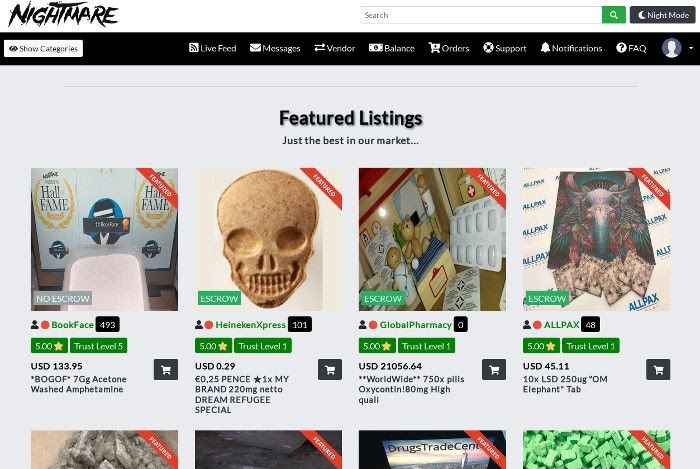Hidden Treasures: Disclosing the Enigmas of Underground Transactions

The dark web has long fascinated the imagination of many, often portrayed as a mysterious underworld filled with illegal activities and hidden secrets. Inside this unindexed part of the online world lies an intriguing market that operates outside the reach of conventional law enforcement, where a wide array of things from common goods to highly illegal services can be found behind a curtain of concealment. As curiosity in dark web commerce grows, so does the interest about the mechanisms that drive these markets and the effects they have on the world.
Exploring the realm of darknet markets reveals a complex ecosystem driven by a myriad of factors, including the quest for privacy, the yearning for non-conventional goods, and the temptation of transgressing societal taboos. While many are drawn to these markets for ill-intentioned purposes, some seek out the unique products and services that traditional online shopping cannot offer. Understanding the nature of darkweb markets is essential not only for grasping the shadowy aspects of digital commerce but also for understanding the changing landscape of internet shopping in the 21st century. spintax ### Grasping the Underbelly of the Internet
The hidden web represents a obscured part of the internet that is not indexed by traditional search engines. It operates on secondary networks that require specific software, settings, or permissions to get to. The most frequent way to navigate the dark web is through Tor, which obscures user activity by routing internet traffic through a network of volunteer-operated servers. This level of privacy attracts a diverse range of users, from those seeking confidentiality to individuals involved in illicit activities.
Darknet markets are a key component of the dark web, functioning as online platforms where products and resources, often prohibited, are acquired and sold. dark market 2025 These markets offer a variety of items, including drugs, counterfeit products, and cybersecurity services. The transactions on these platforms typically utilize cryptocurrencies to boost anonymity, making it difficult for authorities to trace the buyers and vendors involved. This setting fosters a singular economy that exists outside traditional regulations.
Comprehending the motivations behind the use of dark web markets is important. While many users are drawn to the promise of discretion and the capacity to evade censorship, others may be driven by curiosity or the wish to take part in risky behavior. The allure of disguised commerce can result in a intricate web of interactions that exist far from the oversight of law enforcement and societal standards, making it a captivating yet worrisome area of study.
Economics of the Dark Web
Darknet is an elaborate economy that operates mainly outside traditional financial systems. This secretive market thrives on anonymity and is driven by various demand and supply dynamics. Digital currencies, especially Bitcoin, serve as the dominant medium of exchange, providing the essential confidentiality for transactions. This financial mechanism attracts buyers and sellers who seek to bypass regulatory oversight and engage in activities often deemed illegal in the conventional marketplace.

Within this secret economy, a wide range of goods and services can be found, from illicit drugs and counterfeit goods to hacking services and stolen data. The operation of darkweb markets involves a multi-layered approach to ensure security and secrecy for all involved parties. Vendors often use escrow services to protect transactions from fraud, while buyers rely on feedback and ratings to gauge the legitimacy of sellers. This system creates a unique environment where trust is built through digital reputation rather than traditional means.
The economic environment of the darknet has significant implications for global commerce and law enforcement. Authorities struggle to regulate these markets due to their decentralized nature and the advanced methods employed by users to obscure their identities. As darkweb markets continue to evolve, they raise ongoing questions about the prospects of digital trade, the balance between privacy and security, and the persistent challenge of curbing illicit activities online.
Hazards and Ethics of Underground Exchanges
Engaging in deals on the hidden web brings notable concerns for consumers. One of the key issues is the risk for fraud and scams. Many platforms are devoid of oversight, causing situations where clients may lose their funds without obtaining the promised goods or services. Additionally, the anonymity of the dark web can enable harmful individuals to manipulate individuals, making it crucial for users to act with vigilance and conduct thorough analysis before making any buying.
Aside from economic risks, there are law-related ramifications associated with dark web trade. Many goods and assistance sold on these sites are illegal, including everything from illegal substances to hacked information. Purchasing or even looking at certain goods can put users to law enforcement investigation or possible penal penalties. It is essential for users to understand the laws in their jurisdiction and to be aware of the repercussions of participating with hidden web markets.
Ethically, the dark web presents a complicated landscape. While some argue it provides a venue for free speech and access to knowledge in repressive governments, the pervasive presence of criminal conduct obscures its image. Exchanges that contribute to damage, be it through narcotic distribution or the sharing of illicit goods, question the moral compass of individuals. Moving through this moral context demands a deep consideration on the consequences of one's actions and their wider impact on the public.
